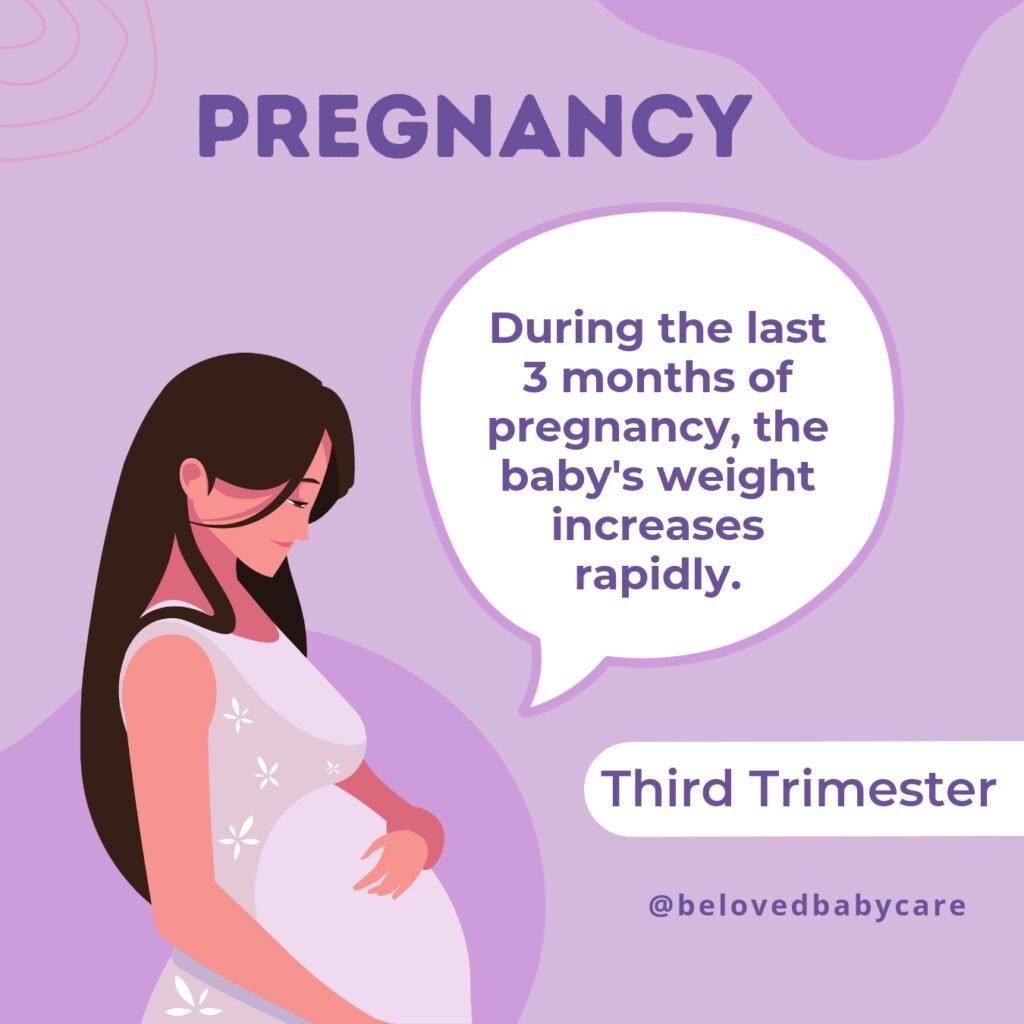Precautions and Food List for the Last 3 Months of Pregnancy:

The last 3 months of pregnancy is called the Third Trimester. The Third Trimester is a critical period for both the baby’s development and the mother’s readiness for childbirth. During this crucial time, it’s essential to pay attention to a pregnant mother’s food choices.
Let’s explore some important guidelines:
- Vitamin K Importance:
- Vitamin K plays a vital role in blood clotting, especially after delivery. To ensure an adequate supply of this essential nutrient during childbirth, focus on consuming foods rich in vitamin K.
- Iron for Anemia Prevention:
- Just like in the first and second trimesters, iron remains crucial during the third trimester. Anemia can pose risks, including an increased chance of preterm labor. Prioritize iron-rich foods to maintain optimal health.
- Managing Caloric Intake:
- As the baby’s weight increases rapidly in the last 3 months of pregnancy, it’s essential to nourish yourself well. Compared to earlier trimesters, your caloric needs will slightly rise. Aim for an additional intake of at least 400 calories during this period.
- Avoid Weight-Gain Foods:
- Steer clear of foods that contribute to excessive weight gain. Consult with your doctor to create a personalized diet plan based on both your weight and the baby’s needs.
Food List for the Last 3 Months of Pregnancy
During this period, the baby’s weight increases rapidly, leading to higher nutrient demands. It’s crucial for pregnant mothers to focus on nutritious foods. Let’s explore some important considerations:
- Iron-Rich Foods:
- Anemia risk persists in the third trimester. Boost your iron intake by consuming foods such as almonds, bananas, spinach, lentils, green vegetables, and fruits. Vitamin C enhances iron absorption, so include citrus fruits in your diet.
- Calcium and Vitamin D:
- The demand for calcium and vitamin D rises during this time. Include vitamin D-rich foods like egg yolk, beef liver, mushrooms, oranges, and malt for better calcium absorption. Consult your doctor about vitamin D supplements. Additionally, spend at least 10 to 15 minutes in the sun daily between 10 am and 3 pm.
- Strengthening Baby’s Bones:
- Calcium is essential for strong baby bones. Dairy milk, broccoli, almonds, and yogurt are excellent sources of calcium for pregnant mothers.
- Extra Calories:
- Increased caloric intake is necessary now. Dry fruits like raisins and dates provide additional energy.
- Protein Intake:
- The quantity of fish, eggs, pulses, and other protein-rich foods depends on the child’s weight. After necessary tests, your doctor will determine the appropriate protein intake.
- Fiber-Rich Foods:
- Relieve constipation by consuming fiber-rich foods such as brown rice, vegetables, beans, coconut, cashew nuts, and peanuts.
- Supplements:
- Follow your doctor’s advice regarding folic acid, iron, and calcium supplements to meet additional nutritional needs.
Remember that a balanced and nourishing diet is crucial for a healthy pregnancy
Foods to Avoid During Pregnancy
Certain foods should be avoided during pregnancy. Here are some guidelines:
- Raw or Undercooked Vegetables: While vegetables are essential, it’s crucial to avoid raw or undercooked ones during pregnancy. Proper cooking ensures safety and minimizes the risk of indigestion.
- Salt Intake: Excessive salt consumption can lead to high blood pressure, especially in the third trimester. Be mindful of your salt intake. Additionally, too much salt may contribute to swollen feet.
- Salty, Spicy, Oily, and Caffeinated Foods: These should be limited during pregnancy. High salt, spicy dishes, oily foods, and caffeinated beverages can affect your well-being.
- High-Sugar Foods: Pregnancy increases the risk of diabetes. Therefore, it’s advisable to avoid sweets, sugary foods, and high-sugar items.
Remember that every person’s body responds differently. Always consult your regular doctor for personalized advice on your post-pregnancy diet.
